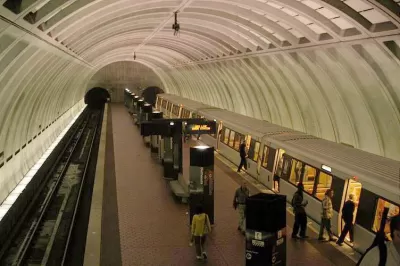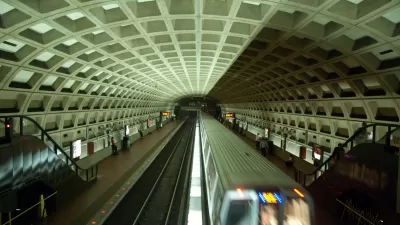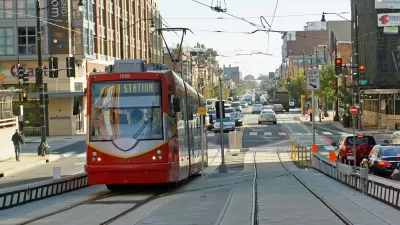The computer-driven trains will start up again next year with the goal of improving riders’ experiences.

Metro says it plans to bring automatic train operation (ATO) back to the Washington, D.C. area in 2019, reports Faiz Siddiqui. The computerized train system was pulled offline in 2009 after the Red Line accident that killed nine people, though ATO was not the cause of the crash.
The agency says that use of ATO will improve travel for Metro users by decreasing headways and making rides smoother. To address safety concerns about the reintroduction of ATO, Metro plans to disable the technology outside of rush hour and to train system operators on its use. Metro also will start using an automatic door system, which will decrease delays at stations and improve safety.
“ATO’s restoration is part of a suite of initiatives [Metro General Manager Paul J.] Wiedefeld plans to introduce for the coming year — including mobile payment through a dedicated app and SmarTrip ride credits for anyone whose trip is 10 minutes later than Metro estimates,” says Siddiqui.
FULL STORY: Metro aims for a late-2019 return to computer-driven trains

Alabama: Trump Terminates Settlements for Black Communities Harmed By Raw Sewage
Trump deemed the landmark civil rights agreement “illegal DEI and environmental justice policy.”

Planetizen Federal Action Tracker
A weekly monitor of how Trump’s orders and actions are impacting planners and planning in America.

The 120 Year Old Tiny Home Villages That Sheltered San Francisco’s Earthquake Refugees
More than a century ago, San Francisco mobilized to house thousands of residents displaced by the 1906 earthquake. Could their strategy offer a model for the present?

In Both Crashes and Crime, Public Transportation is Far Safer than Driving
Contrary to popular assumptions, public transportation has far lower crash and crime rates than automobile travel. For safer communities, improve and encourage transit travel.

Report: Zoning Reforms Should Complement Nashville’s Ambitious Transit Plan
Without reform, restrictive zoning codes will limit the impact of the city’s planned transit expansion and could exclude some of the residents who depend on transit the most.

Judge Orders Release of Frozen IRA, IIJA Funding
The decision is a victory for environmental groups who charged that freezing funds for critical infrastructure and disaster response programs caused “real and irreparable harm” to communities.
Urban Design for Planners 1: Software Tools
This six-course series explores essential urban design concepts using open source software and equips planners with the tools they need to participate fully in the urban design process.
Planning for Universal Design
Learn the tools for implementing Universal Design in planning regulations.
Clanton & Associates, Inc.
Jessamine County Fiscal Court
Institute for Housing and Urban Development Studies (IHS)
City of Grandview
Harvard GSD Executive Education
Toledo-Lucas County Plan Commissions
Salt Lake City
NYU Wagner Graduate School of Public Service




























